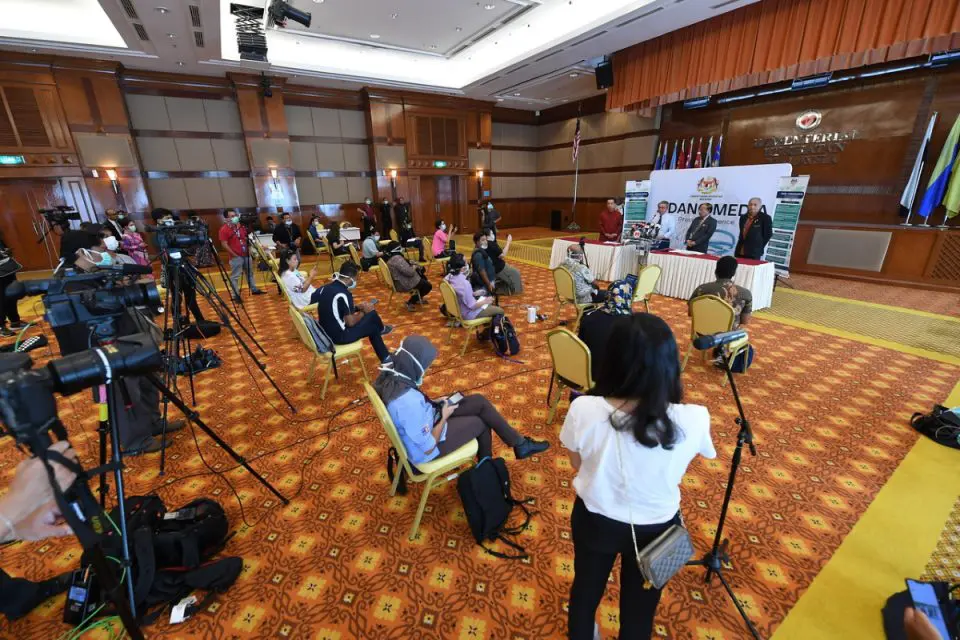KUALA LUMPUR, May 4 — The establishment of a Malaysian Media Council is now seen as such an important agenda for the media in line with Malaysia’s position in the Reporters Without Borders (RSF) Freedom of Speech index which jumps 22 rungs to the 101st spot among 180 countries.
The issue of setting up the Malaysian Media Council had long been discussed among media practitioners with the government, but it was as if there were too many obstacles to make it a reality.
In fact, the Malaysian Media Council is seen as a platform for ensuring media freedom in the country but at the same time ensuring that news reports by the media are done in a responsible manner.
University Kebangsaan Malaysia (UKM) (Media Policy Specialist) senior lecturer Dr Muhammad Adnan Pitchan hoped the government would ensure that the freedom of the media in the country was always assured and that the establishment of the Malaysian Media Council would allow the media to report freely without the intervention of certain parties.
“It means that when we (the media) are free to write on what is going on in the country, we want to speak out when a mistake occurs so that it can be corrected. What will happen if the media cannot speak up?” he told Bernama.
Basically, according to a recommendation from the Malaysian Press Institute (MPI), the Malaysian Media Council is a media council covering all media in the country, namely print, electronic media (broadcasting) and internet media.
In general, the Malaysian Media Council aims to safeguard the interests of the press and the media, while simultaneously looking after the interests of the country.
Meanwhile, Muhammad Adnan said the establishment of the body not only serves to champion journalists’ interests but also to protect the public.
“That is, if the public is dissatisfied with the coverage or questions asked (by journalists) as it may interfere with the individuals’ sensitivities, they can lodge a complaint to the Malaysian Media Council and they will be neutral to the public and the media, “he said.
Meanwhile, Universiti Teknologi Mara (UiTM) Communication and Media Studies Faculty political and social media analyst associate professor Dr Sara Chinnasamy said the establishment of the Malaysian Media Council would further enhance the image, quality and professionalism of the media industry in the country.
“The Malaysian Media Council, among others, will ensure that the function of the social media is taken seriously, establishing its own system of media accountability and regulating the interpretation of false news from the perspective of journalists,” she said.
In addition, she said, the positive development of the country’s ranking in the RSF’s media freedom index reflected the way media coverage in Malaysia had improved.
“It is so apparent that the environment for journalists is much more relaxed in reporting, self-censorship has lessened. But there is still the practice of internal screening. The print media is now offering a fuller and more balanced range of viewpoints, including support for the new ruling coalition, and support for the old ruling coalition, now in opposition. The new government has kept its promise to repeal the provisions of the anti-fake news law, “she said.
At the same time, she stressed, the media was playing a very important role during the Covid-19 outbreak when performing a social role in line with other frontliners.
According to her, the sacrifices of the media practitioners were clearly visible when they were covering many locations despite knowing the dangers of the Covid-19 pandemic, compounded by the movement control order (MCO) which restricted mobility.
“The media is covering events all over the place regardless of the weather. Their role here is clear, but their responsibility is greater when fake news pursues them. Almost every day there is fake news, but we see many strategies adopted to avoid fake news during Covid-19 like the PSA (public service announcement) in the mainstream media,” she said.
Media Council Pro-Tem chairman Pramesh Chandran said the government and media must work together to create a new discussion mechanism in accommodating media coverage, according to the Covid-19 current situation, which expected people to adjust to the new normal.
He said rather than limiting and cutting off the communication to keep social distancing and avoid mass gathering, both parties could have constructive dialogue or having weekly town hall via online.
“The government needs the credible and independent media in order to convey issues… barriers in communications will allow fake news and irresponsible information,” he said at Brew Your Own Coffee Talk webcast entitled Free(r) Press in Malaysia at the Foreign Correspondents Club of Malaysia’ Facebook yesterday.
Meanwhile, Centre of Independent Journalism (CIJ) Malaysia executive director Wathshlah Naidu said it was crucial for the media institutions to re-envision a new business model in order to survive at this turbulent moment.
“What we need to think about is what kind of stimulus package that can really sustain and allow the media to stay afloat during the crisis,” she said.
— Bernama





